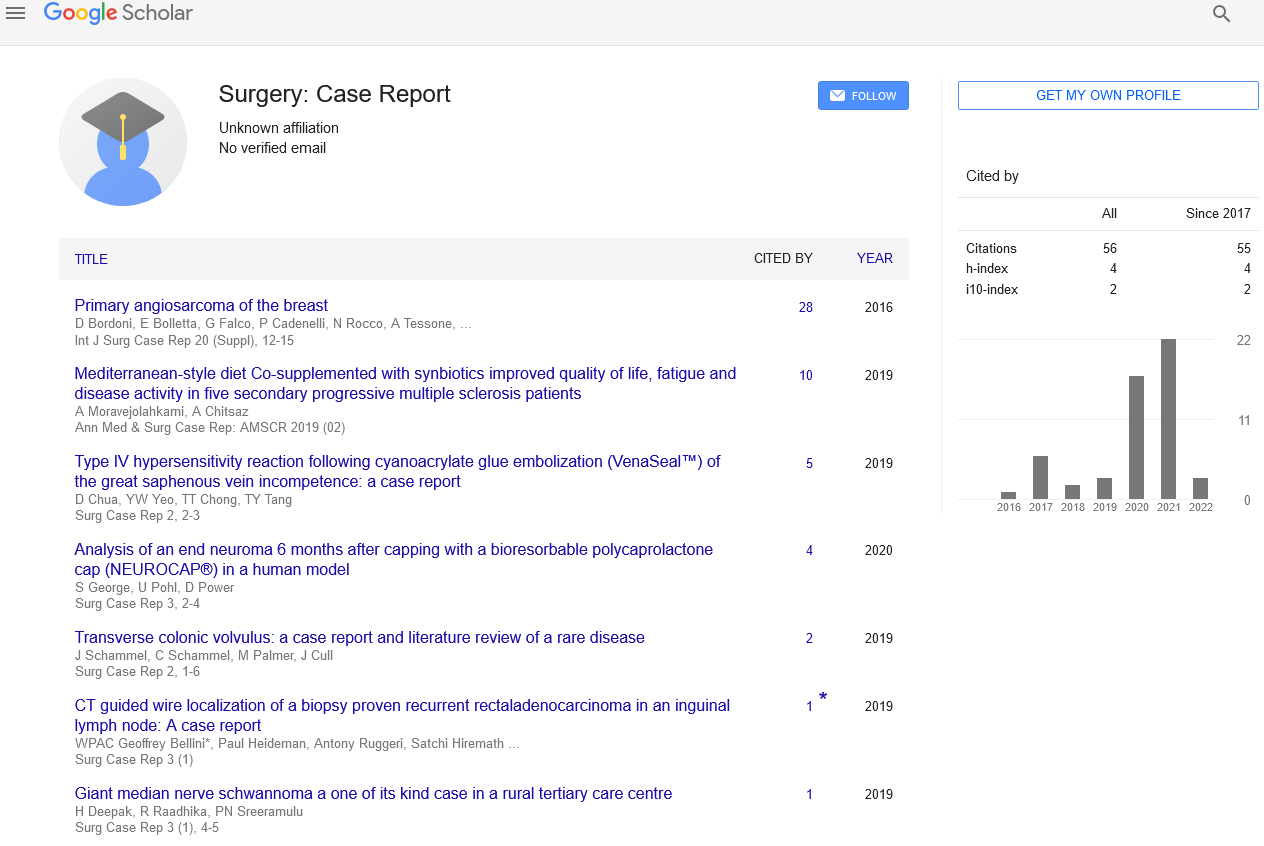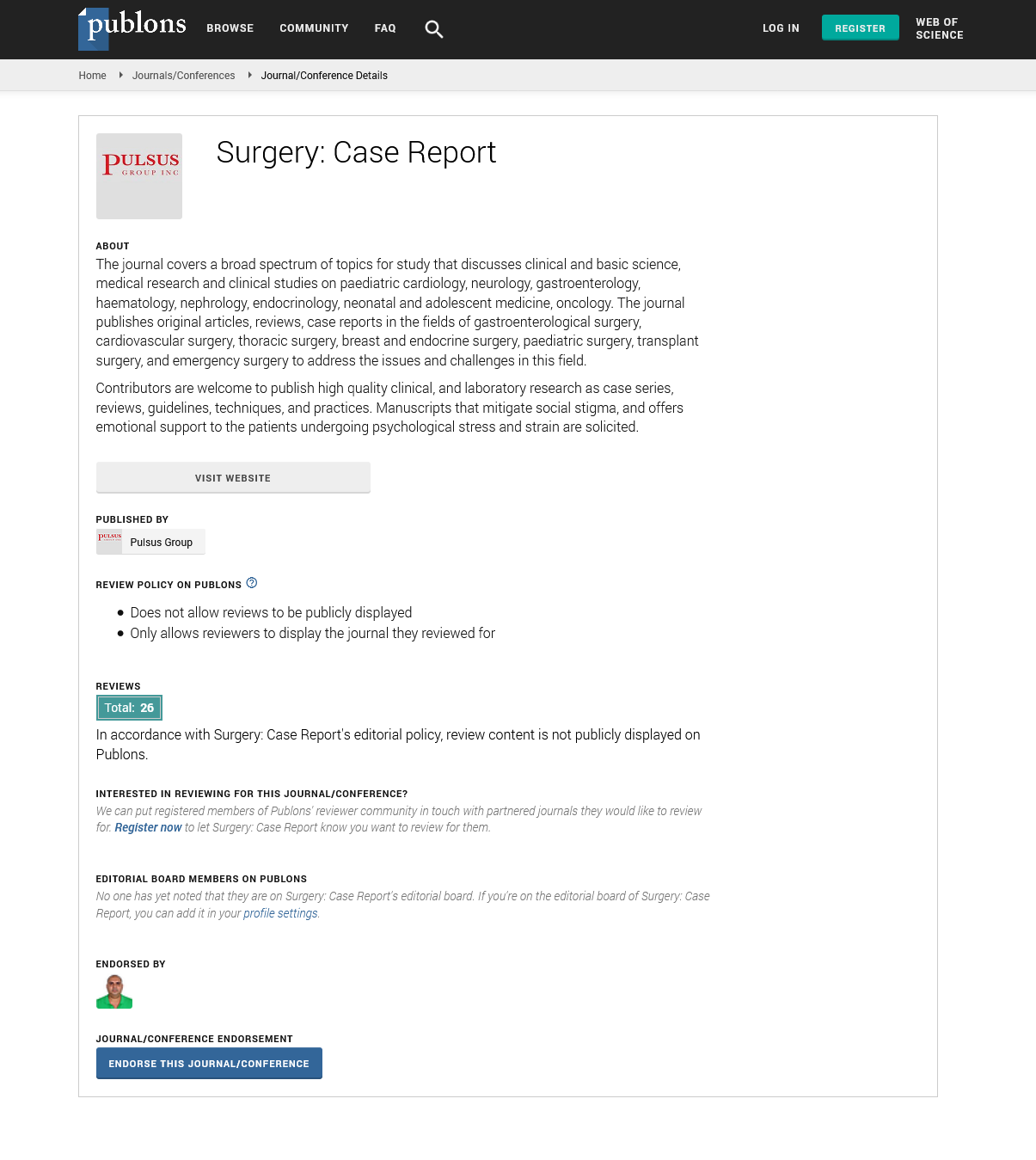Breast cancer metastasis to Liver
Received: 05-Jan-2021 Accepted Date: Jan 19, 2021; Published: 22-Jan-2021
Citation: Spandana V. Editorial Note for Treatment of Breast Cancer Metastasis to Liver. Surg Case Rep 2021; 5:1.3.
This open-access article is distributed under the terms of the Creative Commons Attribution Non-Commercial License (CC BY-NC) (http://creativecommons.org/licenses/by-nc/4.0/), which permits reuse, distribution and reproduction of the article, provided that the original work is properly cited and the reuse is restricted to noncommercial purposes. For commercial reuse, contact reprints@pulsus.com
Editorial
Breast cancer became second leading cause of mortality in worldwide. The Breast cancer burden is estimated to nearly double over the next decade in low- and middle- income countries. Breast cancer is a fast- growing tumor that develops in the mammary gland. Here, the Breast cancer cells are able to leave the original tumor and travel to other parts of the body in a process called metastatic spread or metastasis. Commonly breast cancer metastasizes to the bones, lungs, and liver. Breast cancer contains specific molecular types, which are correlated with different prognosis and response to treatment. It is a heterogeneous disease; approximately 50% of all women diagnosed with breast cancer develop metastatic disease. Liver metastases develop in approximately 50% of all patients with metastatic breast cancer and 5–12% of patients develop liver metastases as the primary site of breast cancer recurrence.
Currently for BCLMs chemotherapy is a standard treatment. Even though a variety of chemotherapy treatments have been tried, average survival time for the patients with metastatic breast cancer involving only the liver, anyway of the degree of hepatic involvement, is 22- 27months. There are two potential regimen trials, where the scientists are differentiated the survival rates of patients with BCLMs is treated with two different chemotherapy treatments. The results were shown that the poor survival rates correlated with the treatments there is increasing interest in the use of local therapies in conjunction with systemic therapy to enhance the prognosis of patients with BCLMs.
Whether in case of failure in systemic treatments, surgical resection is considered as the standard treatment in spite of a lack of robust confirmation of benefit. Anyhow, due to the location of disease and physical condition, the number of BCLM patients which are eligible for surgery is little. Percutaneous thermal ablation methods, i.e., radiofrequency ablation (RFA) and microwave ablation (MWA), are considered potentially curative local treatment options. The advantage of RF ablation for treating primary liver tumors and colorectal liver metastases not flexible to surgery is well demonstrated. They are less expensive, less invasive & have fewer Indications and complication rates than surgery. Due to the conventional ultrasound- & computed tomography-guided single-probe thermal ablation is restricted by tumor size, multi-probe stereotactic radiofrequency ablation (SRFA) with intraoperative image fusion for instant, reliable judgment has been developed in order to treat large and multiple tumors within one session. As such, RF ablation is should be recognized as a first-line therapy for local patients with metastatic breast cancer limited to the liver and in patients whose extra hepatic disease is constant with systemic chemotherapy. For BCLMs patients microwave ablation has also been used for treatment. Significantly, RF ablation is a safe method that can be constant if new hepatic metastases appear.






